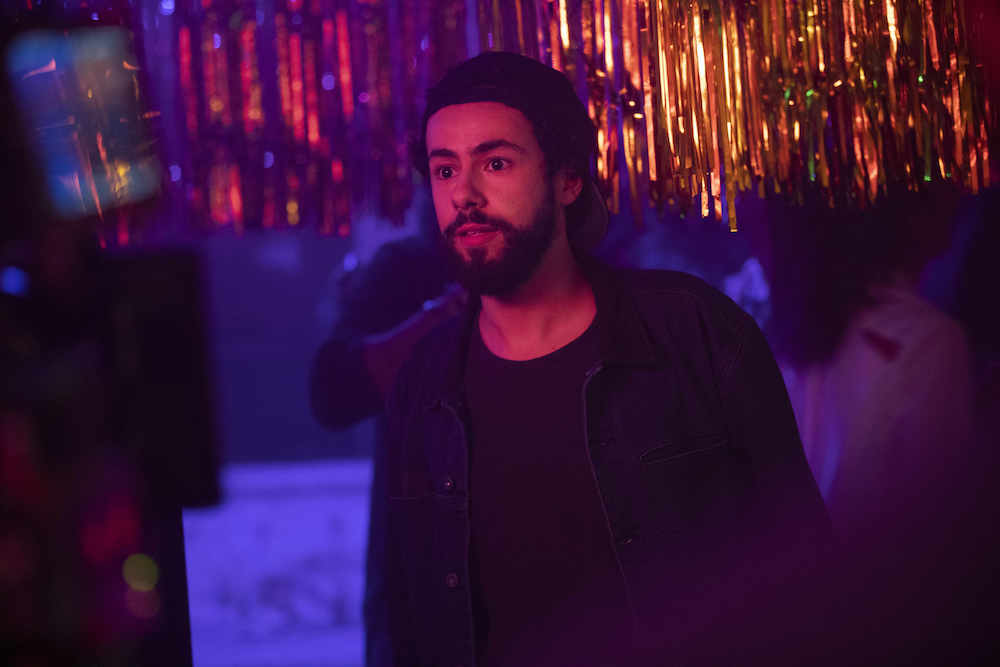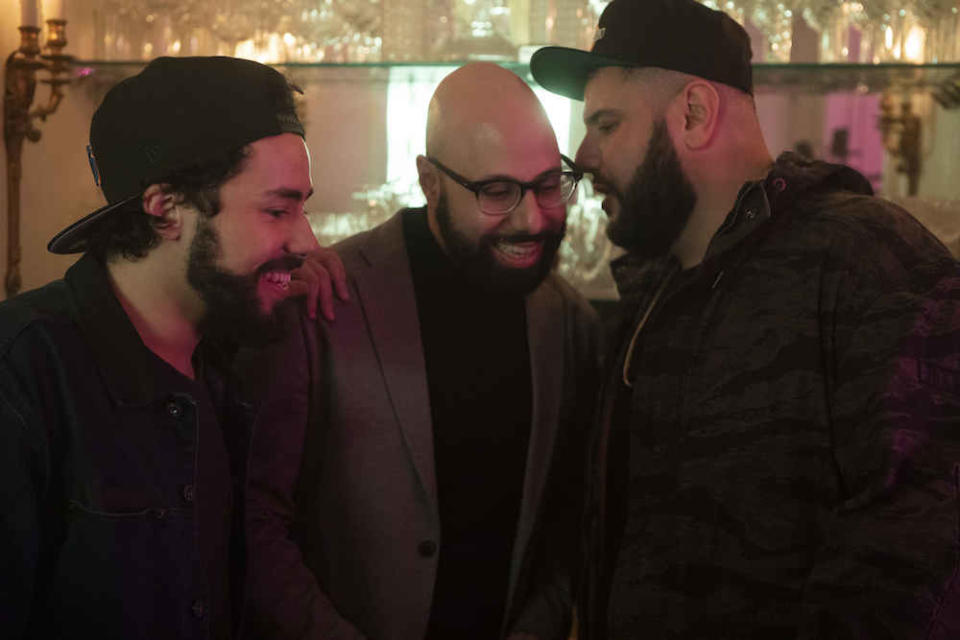‘Ramy’ Review: New Jersey Bros Wrestle With Religion in Hulu’s Whip-Smart Comedy — SXSW


People will be quick — and right — to point out the new Hulu comedy “Ramy” is one of a handful to represent Muslim characters onscreen, let alone let their story steer the narrative. Following an Egyptian-American millennial named Ramy (played by creator, producer, and writer Ramy Youssef), the series dials in on a generation caught between progressive ideals and regressive traditions; between wanting to form their own relationship with God and being told there’s only one way to do it right; between the old ways and the new.
Youssef and fellow producers Jerrod Carmichael and Bridget Bedard treat this internal conflict with the proper gravity, while incorporating plenty of clever situational comedy to help make their points (and earn some laughs). But one of the more striking elements of the first six episodes is the camaraderie between men and the value placed upon supportive friendships. Ramy spends a lot of time with his friends Ahmed (Dave Merheje) and Mo (Mohammed Amer). They discuss the feminist interpretation of sending dick pics over eggs at Mo’s diner. They go to parties together, even if Ahmed’s idea of a good time is finding a quiet room to take a nap. They help each other out, have each other’s backs, and do it all under the macho male guise of quippy insults and know-it-all posturing.
Related stories
'Booksmart' Review: Olivia Wilde's Hilarious Debut Is the Best Teen Party Movie Since 'Superbad'
'The Walking Dead' Review: 'Chokepoint' Is A Tense, Rewarding Hour
Read More:The Best Muslim Characters on TV Didn’t Happen by Accident
They’re bros, and “Ramy” explores their trials and tribulations in similar fashion to HBO’s “Girls” (though without any of the sporadic criticisms). It’s a slice-of-life, adjacent to New York, where the topical content is well-incorporated into the central stories. “Ramy” deserves credit for forging such a strong bond so quickly, digging in so thoroughly, and there are even indications it might expand to more perspectives (though they’re tertiary to the Ramy-centric A-plot early on).

Ramy Youssef, Dave Merheje, and Mohammed Amer in “Ramy”
When we meet Ramy, he’s approaching 30, working a go-nowhere job, and still living with his parents. They want to set him up — with a wife, with a different job, and, really, with a different life. He says he’s still “figuring it out,” a popular phrase among procrastinating, confused, or stuck 20-somethings (and 30-somethings) that’s typically interpreted by the older generation as “lazy.”
But Ramy’s not lazy. He’s actively exploring his faith and, to a lesser extent, his goals. Episodes dig into his disagreements with elders at the mosque, how difficult it is to date people who don’t understand his religion (or don’t understand why he abides by it), and the pluses and minuses of fully committing to Islam. He tries (and fails) to explain to a recent partner why he doesn’t drink, but tries not to draw attention to his sobriety. He tries (and fails) to abstain from drugs without separating himself from people who enjoy a bit of ecstasy. Many of his problems boil down to being torn between what he sees as innocent (aka what the world outside the Mosque sees as no big deal) and what his devout practitioners absolutely forbid.
Read More:‘What We Do in the Shadows’ Review: FX’s Vampire Mockumentary Brings the Fundead to TV
The series also gets into the gender divides instigated by tradition and religious law. Ramy’s sister, Dena (May Calamawy), gets a half-hour all her own after leaving an impression on the outskirts of the early episodes. That’s the most prominent example of the series looking to expand its perspective, but there are moments scattered throughout where Ramy is smartly challenged, and Dena’s isn’t the only impressive standalone arc. Episode 4, “Strawberries,” flashes back to Ramy at age 12, as he starts to explore his budding sexuality… right before 9/11 happens and attitudes toward Muslim Americans are forever changed.
As a general ignoramus to day-to-day Muslim customs and the detailed beliefs of Islam, I can’t claim “Ramy” is authentic. But it is honest. I can’t say it represents an entire group of Americans — a group oft-ignored by Hollywood — but only because it’s so specific to Ramy’s journey. What I can say is that it doesn’t need to fulfill either of those bigger-than-thou obligations to be effective and affecting television. “Ramy” resonates because it treats its characters’ lives with the utmost compassion. Their struggles are universal, as are the jokes, and whether you’re a viewer excited to see a practicing Muslim leading a TV show or just a white guy looking for a good comedy to stream, “Ramy” delivers the goods. We need more series like it, in every sense of the phrase.
Grade: A-
“Ramy” premiered at the 2019 SXSW Film Festival. The first season debuts Friday, April 19 on Hulu.
Sign up for Indiewire's Newsletter. For the latest news, follow us on Facebook, Twitter, and Instagram.

